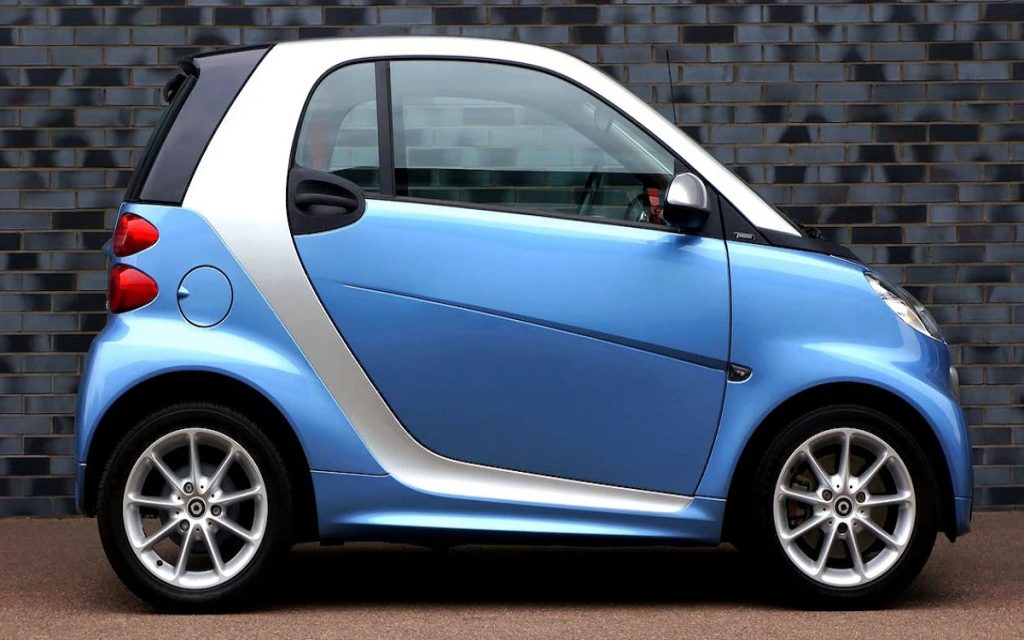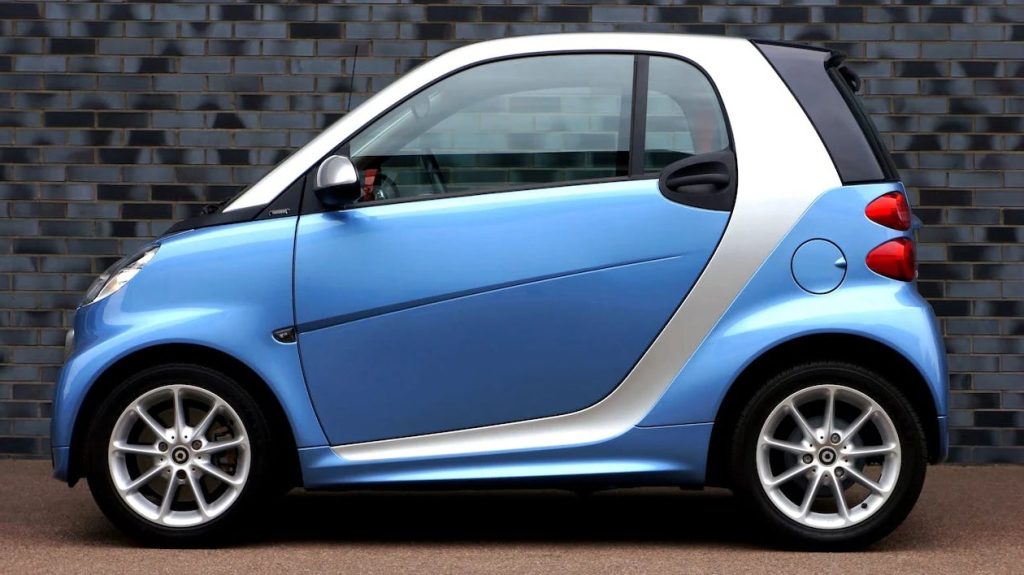Introduction
Smart car gas mileage were introduced in the United States in 2008 as an eco-friendly and fuel-efficient option for city drivers. With models like the Fortwo coupe and convertible, smart cars promised excellent gas mileage – typically around 40 miles per gallon (mpg) – for a low cost vehicle. However, smart cars exited the U.S. market after the 2019 model year, leading many to wonder if there are still Smart car gas mileage being driven here and if their touted fuel efficiency remains useful for American drivers.
Recent Released: Will Xiaomi’s First Electric Car Launch In USA?
Brief History of Smart Cars in the U.S.
The Smart brand originated from Swatch founders Nicholas Hayek and Volkswagen in the 1990s with a focus on affordable, practical and sustainable urban mobility. The Fortwo coupe, smart’s most iconic car, launched in Europe in 1998 before making its way to the U.S. in 2008 through a partnership between Smart USA and Penske Automotive Group.
For over a decade, smart cars sold Americans on excellent gas mileage and a quirky microcar designed for crowded cities. However, sales dropped sharply in recent years, leading parent company Daimler to end U.S. operations in 2019 amid shifting consumer preferences for massive trucks and SUVs. No new smart models have entered the U.S. since, leaving drivers to purchase used smart cars rather than the latest versions with updated technology and safety features.
Average Gas Mileage of U.S. Smart Cars
The gas mileage estimates of smart car have always beaten comparable models from other brands.
Here’s a look at the fuel efficiency of some popular smart cars formerly sold in America:
- Smart Fortwo coupe (manual): 33 miles per gallon city, 41 mpg highway
- Smart Fortwo coupe (automatic): 34 mpg city, 38 mpg highway
- Smart Fortwo convertible: 32 mpg city, 39 mpg highway
- Smart Fortwo Electric Drive: 122 mpge (miles per gallon equivalent) city, 93 mpge highway
Based on U.S. Environmental Protection Agency (EPA) testing, the overall weighted average for Smart car gas mileage engines falls around 36-37 mpg in combined city/highway driving. Real-world results vary based on driving habits and conditions but generally land close to official government estimates. That gas mileage easily bests the average for all cars in America, estimated around 25 mpg.
| Model | City MPG | Highway MPG | Combined MPG |
| Smart Fortwo Coupe (manual) | 33 | 41 | 36 |
| Smart Fortwo Coupe (automatic) | 34 | 38 | 36 |
| Smart Fortwo Convertible | 32 | 39 | 35 |
| Smart Fortwo Electric Drive | 122 mpge | 93 mpge | 107 mpge |
*Combined mpg and mpge based on EPA formula of 55% city, 45% highway driving
This level of fuel efficiency, especially from the affordable Fortwo coupe in the low $20,000s, made Smart car gas mileage champion among tiny city runabouts. But how does that hold up today?
Do Smart Cars Still Deliver Exceptional Gas Mileage for U.S. Drivers?
Used Smart car gas mileage no longer benefit from the latest engine and fuel optimizations from the manufacturer. However, there aren’t many complaints about declining gas mileage from smart owners yet. With advanced fuel injection systems and only 70-90 horsepower to move a car weighing around 1,800 pounds, most used smart fortwos on American roads still achieve EPA ratings.
Assuming proper maintenance and driving habits that maximize mpg performance – such as lower speeds, gradual acceleration and avoiding excessive idling – used smart cars return excellent gas mileage. User-reported estimates for older models generally hit EPA numbers or exceed 30 mpg in combined driving. Some drivers even see 40+ mpg with careful highway driving. Given the lack of recent redesigns before smart left the U.S., gas mileage remains strong rather than dropping over time as with many aging vehicles.
Higher mileage
Of course, not every smart car still clocks EPA ratings. Higher mileage smarts over 100,000 require more maintenance costs, reducing gas mileage. City driving with more stop-and-go traffic noticeably cuts mpg too. However, the tiny light-weight construction continues powering remarkable Smart car gas mileage relative to larger used vehicles. For savvy buyers focusing on fuel efficiency over features, picking up a second-hand smart car still pays dividends at the pump.

Smart Car Reliability Concerns and Safety
Exceptional gas mileage isn’t very useful if a car has serious reliability problems or lacks essential safety tech. Alongside impressive mpg ratings, smart cars have notably mixed reputations for long-term durability and safety protections compared to competitors.
In J.D. Power U.S. Vehicle Dependability studies and Consumer Reports owner surveys, smart models regularly score below average reliability marks. Engine issues, poor transmission performance and electrical glitches commonly crop up after just a few years, requiring expensive repairs. safety tech like automatic emergency braking has been missing as well.
While used Smart car gas mileage promise continued fuel savings, counting on trouble-free operation as the mileage creeps higher is uncertain. Factoring in more frequent maintenance costs helps justify buying an older smart rather than something larger but more reliable. For daily transportation needs, it may prove smarter to find a used hybrid or fuel-sipping conventional car over 100,000 miles with better durability and safety ratings.
Future of Smart Cars in the U.S.
As smart winds down operations worldwide by 2024, the Fortwo and other models are going extinct. No new Smart car gas mileage or replacement parts will be available moving forward, other than residual dealer stock or international imports. This spells trouble for U.S. smart fans depending on new components to keep aging models running.
Smart is shifting focus towards building electric SUVs and crossover vehicles more aligned with current demand. The Smart #1 compact electric crossover debuted overseas in 2022 on a joint platform with Geely. Unfortunately no indications exist that updated smart models will return stateside anytime soon after the brand’s U.S. collapse. For American consumers seeking smart-like ultra fuel efficiency, other options are left trying to fill the niche.

Conclusion
In summary, used Smart car gas mileage generally remains quite impressive despite exiting the new car market. Consistent with EPA estimates, properly maintained older smart fortwos average around 36 mpg or better for American drivers – well beyond most vehicles. Extracting maximum mpg does require careful driving and more frequent service costs as high mileages take a toll though. With Smart no longer manufacturing the Fortwo or supporting U.S. operations, parts and support headaches will mount, making prolonged fuel economy less guaranteed. Drivers still prioritizing gas savings may want to consider other lasting high efficiency models from Toyota, Honda and Hyundai too. For now smart cars present a very economical used car option but reliability and accessibility challenges are accelerating as the tiny two-seaters race towards retirement.












Leave a Reply